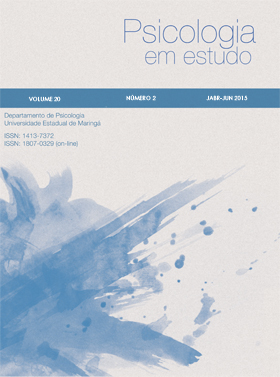AVALIAÇÃO DA TOMADA DE DECISÃO DE PAIS FRENTE AO TRATAMENTO ONCOLÓGICO PEDIÁTRICO
Résumé
Introdução: A tomada de decisão frente a um tratamento oncológico pediátrico merece um foco de atenção vista a quantidade de decisões que os pais enfrentam durante esse processo, podendo gerar muitas vezes desconfortos emocionais, dúvidas, incertezas e angústias. Dessa forma, avaliar como a equipe de saúde influencia na decisão dos pais se apresenta como fator importante para poder se entender o quanto de autonomia eles possuem para poderem escolher diante das inúmeras possibilidades advindas do tratamento. Objetivo: Avaliar o processo de tomada de decisão de pais frente ao tratamento oncológico de seus filhos, analisando a percepção de coerção, nível de desenvolvimento psicológico moral e outras dificuldades existentes. Método: Foram selecionados dez participantes por conveniência para realizar uma entrevista semiestruturada individual e foram aplicadas a Escala de Percepção de Coerção em Assistência e a Escala de Desenvolvimento Psicológico-Moral. Utilizou-se o método da análise de conteúdo de Bardin para se realizar a categorização das falas dos participantes. Resultados: Nove mães e um pai foram entrevistados (n=10), com média de idade de 33,1 anos. Foram identificadas seis categorias a partir da análise de conteúdo oriundas da temática central. Verificou-se não haver percepção de coerção pelos pais e todos demonstraram nível psicológico-moral adequado para tomarem decisões. Conclusão:Observou-se que, apesar de dificuldades emocionais, os pais se mostraram capazes de decidir questões relacionadas ao tratamento de seus filhos, tendo autonomia o suficiente para a tomada de decisão.Téléchargements
As opiniões emitidas, são de exclusiva responsabilidade do(s) autor(es). Ao submeterem o manuscrito ao Conselho Editorial de Psicologia em Estudo, o(s) autor(es) assume(m) a responsabilidade de não ter previamente publicado ou submetido o mesmo manuscrito por outro periódico. Em caso de autoria múltipla, o manuscrito deve vir acompanhado de autorização assinada por todos os autores. Artigos aceitos para publicação passam a ser propriedade da revista, podendo ser remixados e reaproveitados conforme prevê a licença Creative Commons CC-BY.
The opinions expressed are the sole responsibility of the author (s). When submitting the manuscript to the Editorial Board of Study Psychology, the author (s) assumes responsibility for not having previously published or submitted the same manuscript by another journal. In case of multiple authorship, the manuscript must be accompanied by an authorization signed by all authors. Articles accepted for publication become the property of the journal, and can be remixed and reused as provided for in theby a license Creative Commons CC-BY.











